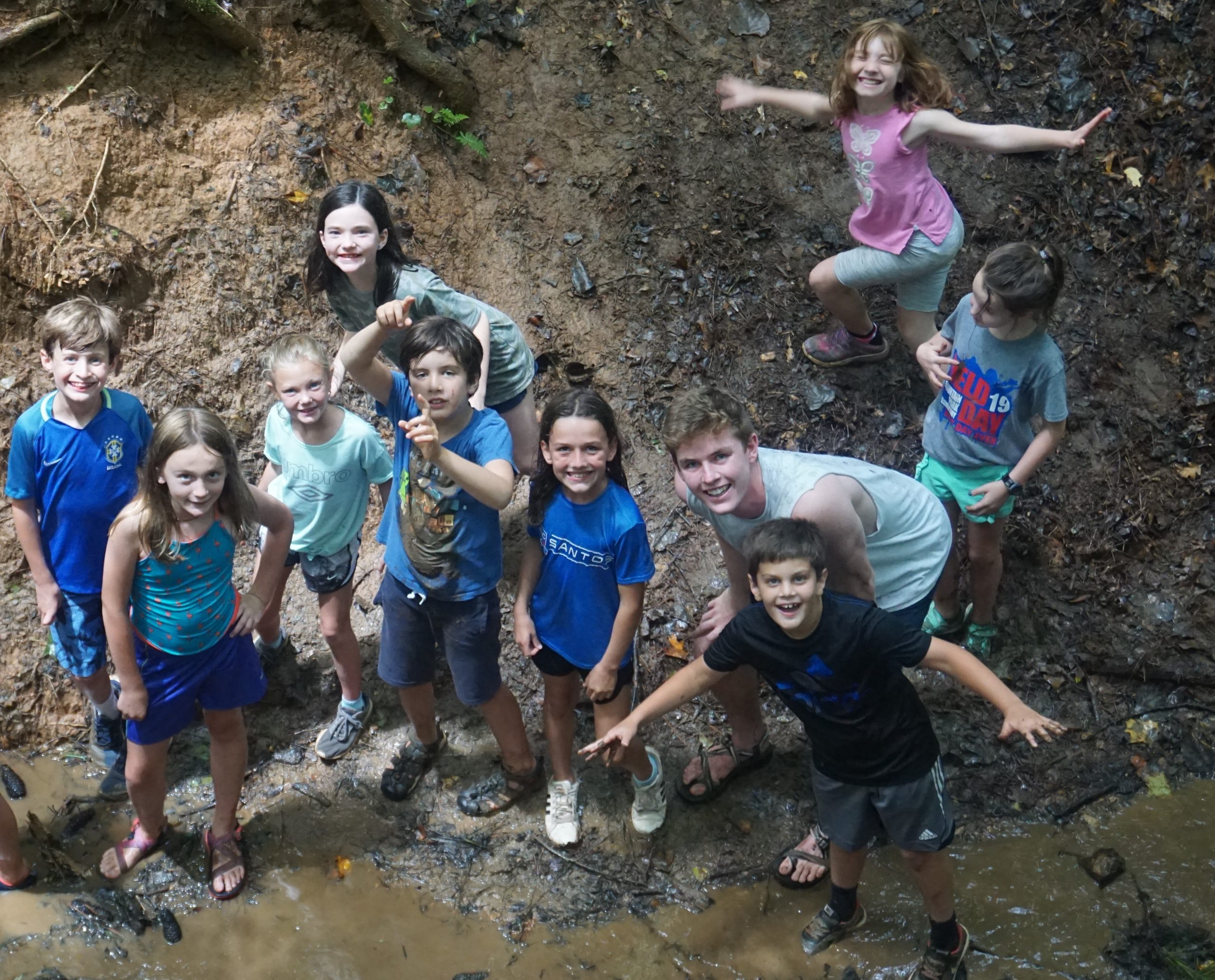Our campus and programs are designed to give campers ample opportunities to spend time in the out-of-doors, to experience traditional camp activities, to interact with others of diverse backgrounds, and to enjoy summer in an atmosphere of acceptance and respect. Within our 40 acres, there are forests, meadows, natural springs, creeks, trails, and abundant flora and fauna. Most activities are held in the open-air, except when there is a threat of severe weather.

Respect: We want to provide a safe and embracing environment for all our campers and staff, and in return expect members of our community to be in accord with our environmental policies and our appreciation of nature.
How to Dress: Everyone attending High Meadows should be dressed appropriately and be aware of the potential to get dirty, wet, hot, or cold.
Exposure and Allergies: We have a few indoor spaces used primarily for younger campers and for activities that need to be protected from the weather. During camp, these indoor areas are not air-conditioned. In addition, none of our indoor spaces are completely sealed from the outdoors. Therefore, things like dust, dirt, and changes in temperature are more common than might be expected in a more traditional, single building institution. Persons with severe allergies or sensitivities must understand this, as there are not always practical ways for us to protect them from the natural environment.
Identifying Surroundings: We keep professional landscaping to a minimum and restrict the use of pesticides and herbicides. As a result, it is not uncommon to encounter plants and animals that may be harmful. We educate our children about our campus, and expect them to be able to identify and avoid situations which could pose a threat. Poison ivy is common in our deep forests, and we frequently encounter spiders, snakes, and stinging insects. We attempt to eradicate identified ant piles and insect nests, relocate venomous snakes, and destroy venomous spiders, yet there is always a chance that these things may be encountered anywhere on our property. Again, persons with severe allergies or fears need to take this into consideration.
Footing: Few of our trails and paths are paved, so roots, logs, holes, stones and other natural hazards may be encountered. Our fields are open and great for running, and may still contain rocks or other features which could cause someone to trip or fall.
Climbing: We have guidelines for children climbing trees, playing on the playground equipment, and participating in organized activities, but the potential for injury always exists. As we are spread over 40 acres, campers and staff should be comfortable and able to negotiate a variety of terrain.
Domesticated Animals: We do not operate a petting zoo, nor do we view our animals as pets. We want children to be aware of the traditional value of farm and service animals, and learn to treat all animals in a safe and respectful manner. Our equine activities are conducted by trained staff members and participants are oriented to safety rules prior to riding ponies. Animal behaviors may be unpredictable and unexpected, and care must be taken in visiting and interacting with any of our farm animals. We encourage frequent hand-washing as a universal, standard health measure, but not because of any inherent or increased risk of disease from our animals or environment.
Community: We respect the opportunity of our community members to express their religious, political, and cultural beliefs in an atmosphere of acceptance and tolerance, rather than one of offense or coercion. The celebration of holidays, personal displays of religious symbolism, and exchange of greetings do not indicate or imply a preference for any system of beliefs, but rather our desire to educate and expose our children to the diversity of thought and action in the world.
We welcome your participation in our community and in our unique environment. We hope to preserve the “magic of the medders” and hope that all of our community members will understand and respect the characteristics which add such traditional richness and beauty to our programs. Though some may find certain aspects inconvenient or uncomfortable, we sincerely believe that, as it is, our program fosters a positive exposure to and an unparalleled respect for the natural world and its human diversity.